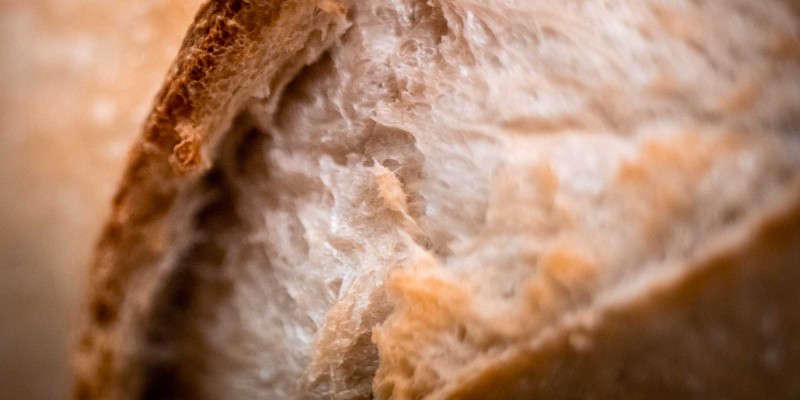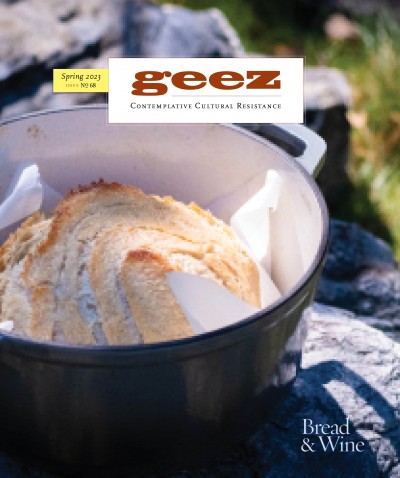On Hearing the Crack

“Yeast Cocoon,” Daniel Wylie-Eggert, Bangor, Pennsylvania, October 2022
I’m a children’s minister at an Episcopal Church, but I resist the urge to define myself by my job. It’s important to say that I am also a fat, white, nonbinary person living in the U.S. South on unceded Tuscarora land. I am also a fervent and frequent baker of bread.
I remember Weight Watchers commercials where a stunningly-lit Oprah reassured people that they could still eat bread and lose weight. “I. Love. Bread.” she intoned. I get it. I love bread too. Bread is good. Bread is so good. Bread is, to put it biblically, very good.
I’ve been baking bread for 11 years now. My bread setup has grown more complicated but somehow the recipes are simpler. The only ingredients I am using these days are flour, water, salt, and yeast in different amounts to yield different loaves.
When I am in the kitchen mixing dough, I am almost always playing music and singing along, but when I take my loaves out of the oven, I prefer to do it in silence. In the silence, I can hear as the outer crust of the bread contracts when it comes into contact with the cooler kitchen air. The centre of the loaf is still piping hot and full of steam so the outer crust cracks audibly for several minutes. I’m always amazed to hear my fresh loaves cracking. I beam with the pride of a mother beholding her newborn child, hearing its first cries.
It is a great mystery to me that such simple constituent ingredients create something so alive. The yeasts (which is a nice word for single-celled fungi) are suspended in the water and eat the parts of the flour to unravel gluten strands, release carbon dioxide, and create the holes in the loaf that fill with steam from the bread’s liquid content and oven heat.
Until you bake it, the loaf is a living organism, a colony of yeasts that you tend for several hours or several days. Sometimes when I am mixing or folding a loaf, I swear I can hear them breathing, maybe even speaking. Maybe one day I will understand what they’re saying.
There are two liturgical actions that are central to the religious identity of Episcopalians: Holy Baptism and Holy Eucharist. “Eucharist” comes from the word for thanksgiving in Greek and can refer to the sacred meal of bread and wine that Christians share, but also refers to the entire worship service leading up to the moment that we break the bread and share the cup.
During Communion, there is a moment when the blessed wafer is broken and makes an audible crack.
It can be a little bit precious (in the pejorative sense) to some folks, who find that “interruptions” by noisy children make it difficult to hear the Body being broken for all. But I have come to believe that the sound of children being present at the Lord’s table is even more beautiful than the sound of Bread cracking. It is a reminder of who is being gathered together and a reminder of Who it is that does the gathering.
I have been warned since I was a chubby child, “You are what you eat.” I find that it’s true, and this weekly meal is slowly transforming me and all of us into the likeness of Christ. My priest bids each week, “All are welcome at the table of the Lord. Remember who it is that welcomes you here.”
Juniper LaNunziata is a children’s minister at an Episcopal Church in Eastern North Carolina. They are a white nonbinary person, a baker of bread, and friend to all.



Start the Discussion